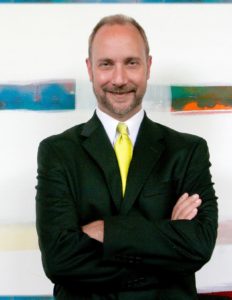Educator Spotlight: Scott Edmiston

Scott Edmiston
Past Department Chair and Professor of the Practice, Theatre
College of Arts, Media and Design
Can you describe your role at Northeastern?
I’m the chair of the Department of Theatre and a Professor of the Practice. In addition to my teaching and administrative roles, I’m a professional theatre director. Last year I directed four productions and this spring directed the American classic The Little Foxes at the Lyric Stage Company of Boston. I’ve been at Northeastern for five years.
Have you taught (or are currently teaching) any courses? Has CATLR helped you in the development of those courses?
I teach dramatic literature and directing. My literature courses primarily cover modern drama from Henrik Ibsen (1890s) to August Wilson (1990s). Our understanding of the theatrical canon is rapidly changing in the 21st century. I attended a fantastic CATLR workshop on diversity and privilege that helped me open up my syllabi to include more women and playwrights of color. I subsequently developed and taught CAMD’s first LGBTQ course on Queer Theatre and Performance.
Has CATLR helped you in your work?
CATLR has been transformative to the Theatre Department. They helped us develop learning outcomes, do curriculum mapping, implement our first major curriculum revision in over 20 years, and create an assessment plan. Our program now has greater focus, rigor, and flexibility. The students have taken notice. We’ve experienced a 47% increase in annual course enrollments and increased the number of theatre majors and minors by 190% in four years.
Can you talk about your experience developing and implementing programmatic assessment plans?
I don’t believe I really understood the value of assessment until we entered into the process. My faculty colleagues and I found it not only valuable but enjoyable and empowering. It helped unite our values as educators. What is more important than sitting down together as a community to assess what we are giving our students? How do we define success? Are we achieving our collective ambitions and dreams? What are our strengths and weaknesses? It has allowed us to systematically look at different dimensions of our program and clarify what they mean to us and how we can improve our teaching in ways both large and small.
Do you have any advice for others looking to create programmatic assessment plans?
It’s not as onerous or rigidly structured as you might think. CATLR helped us develop a plan that was specific to our department’s culture, our values, our faculty’s personality and size, and our discipline. An assessment plan can be highly individualized. Perhaps the biggest surprise to me is how much laughter and creativity we experienced in the process.
What does it mean to you to be both an educator and a learner?
Theatre is an ancient art form, developed by the Greeks. And I primarily teach plays that were written and first performed in previous centuries. As I teach and direct students, the texts come alive again in this shared moment. The beauty and power of these historic documents about what it means to be human become new to me through the interpretive ideas and feelings and talents of my students. So there is always an interplay between the past and the future, the educator and the learner. I share with my students the wisdom of previous generations, and they teach me about the truths, vision, and values of their generation. It’s a glorious cycle of discovery.
